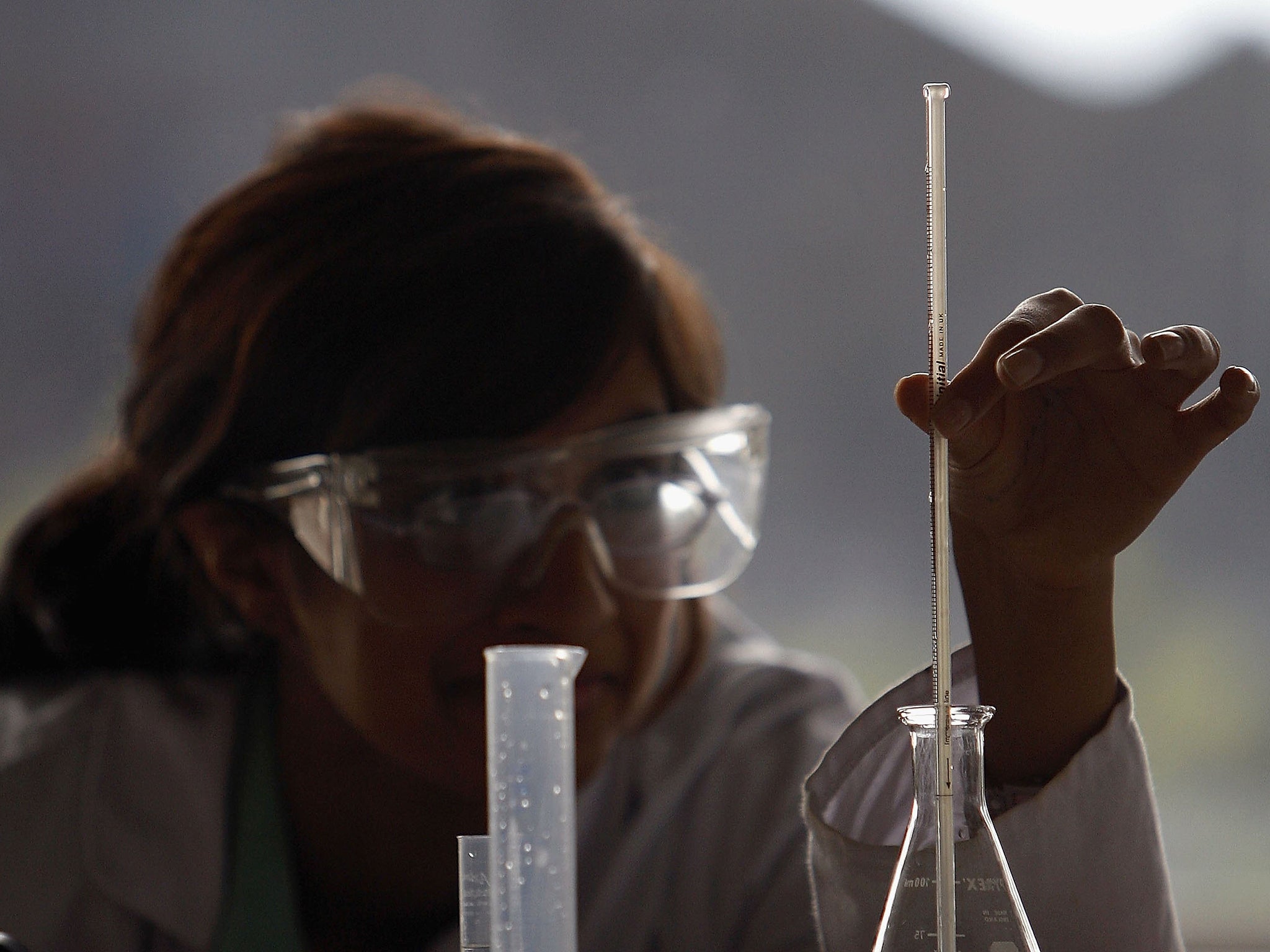Professor Brian Cox: The Government must put more funding into space exploration
Economic return on investment would be huge

Your support helps us to tell the story
From reproductive rights to climate change to Big Tech, The Independent is on the ground when the story is developing. Whether it's investigating the financials of Elon Musk's pro-Trump PAC or producing our latest documentary, 'The A Word', which shines a light on the American women fighting for reproductive rights, we know how important it is to parse out the facts from the messaging.
At such a critical moment in US history, we need reporters on the ground. Your donation allows us to keep sending journalists to speak to both sides of the story.
The Independent is trusted by Americans across the entire political spectrum. And unlike many other quality news outlets, we choose not to lock Americans out of our reporting and analysis with paywalls. We believe quality journalism should be available to everyone, paid for by those who can afford it.
Your support makes all the difference.Professor Brian Cox has urged the Government and the EU to offer more funding to space exploration, saying that lessons should be learned from the Philae lander mission which he believes will create a highly-skilled “Rosetta generation”.
Speaking to the i paper after a Speakers for Schools event on the future of scientific discovery, the physicist and TV presenter expressed concern at the lack of social mobility and limited access to STEM industries [Science, Technology, Engineering and Mathematics] for young people today.
“We don’t invest enough, it’s clear, in space exploration,” he said. “These missions are immensely cost-effective. They’re relatively cheap and provide vast amounts of return. If you look at Rosetta, it’s not an expensive thing to do when it’s spread over 10 years with this tiny amount of money from the European Union and ESA. But the impact has been incalculable.
“Somebody will study it at some point. And I bet you there will be hundreds or thousands of new scientists and engineers out there in the economy generating loads of wealth, based on it. There will be a ‘Rosetta generation’.”
The event, at Chorlton High School in Manchester, was organised by Speakers for Schools, a charity that organises talks from leading professionals and academics to state secondary students. As well as the students gathered in the school hall, two additional local schools took part via webcam, while around 3,600 students across the country tuned in to a live stream and asked questions via social media.
Professor Cox fielded a range of questions including "what’s the most important unsung scientific discovery?", "is there any evidence for parallel universes?", and "why don’t more women study physics?"
He expressed concerns to i that the social mobility from which he benefited may not be available to young people today.
“I was the first person in my family to go university in my family and there’s loads of people my age who were the same. My dad was the first to do A-levels and my granddad worked in a cotton mill. The 20th century is full of people like that: generations doing a little bit better than the last. I worry that that line is not working properly; some of it is policy but a lot of it is information.”

Speaking specifically about how to engage less well-represented groups in the STEM industries, he said it the key is to "show them the path".
“It’s about getting into schools and saying ‘if you want to do this, it is for you and here’s the way to do it. You can do it, irrespective of your background or the wealth of your parents. These are the things we’ve put in place so if you want to go to university, if you want to do a PhD, this is the route’," he said.
On the issue of funding for space exploration, he went on to say that studies showed high-tech missions provided economies a return-on-investment ratio of between 10 and 40 times.
“It’s about having the political will to actually stand up. And the charisma, as Kennedy did back in the 60s to say ‘why are we going to do it? Because it’s hard.’ What they did, arguably, with Apollo, was lay the foundation for American technological dominance in the last bit of the 20th century.
“I think George Bush senior said that Apollo is the best investment since Leonardo Da Vinci bought a sketchbook. It is mystifying to me - let’s just confine it to Britain - why we don’t, now that we’ve come through these economic problems and begin to see the economy rise again, start to invest more in R&D. If we don't, it will be absolutely unjustifiable.”

The physicist - the former keyboard player for 90s band D:Ream - also revealed that he would be willing to pay to travel into space. He said that despite the recent setback experienced by Virgin Galactic, when a test flight crashed in the Mojave desert killing a pilot, he was confident commercial space travel would become a reality in the next “10 years, or likely sooner than that”.
“For Human Universe, I did some training,” he told i. “I floated about in a spacesuit for a while in Russia and I’ve still got sore ribs, eight months after spending three and a half hours doing some astronaut training.
“But I know that the commercial space flights are much less hard than that. You basically just sit there and have a great view. So in that sense, I would go into space. But I don’t underestimate how being an astronaut is bloody hard work.”
At the beginning of each academic year, Speakers for Schools hosts a campaign aimed at highlighting an important topic. This year’s series focusing on STEM subjects was launched by Wikipedia founder Jimmy Wales last month.
Upcoming speakers in the series include Eileen Naughton, MD of Google UK, Dame Tessa Jowell DBE MP, in her capacity as board member of Founders Forum for Good and Dame Barbara Stocking DBE, former head of Oxfam.
Robert Peston, founder of Speakers for Schools and BBC’s Economics Editor, said: "It is increasingly clear that Britain's prosperity, and the prosperity of its people, depends on our young people acquiring world-class skills and making the most they can of their intrinsic brilliance.
“That is why Speakers for Schools has made it a huge priority to organise free talks in schools on science and technology - and why I personally am so grateful to Brian Cox for being such an important part of this initiative to inspire students to aim high."
Join our commenting forum
Join thought-provoking conversations, follow other Independent readers and see their replies
Comments